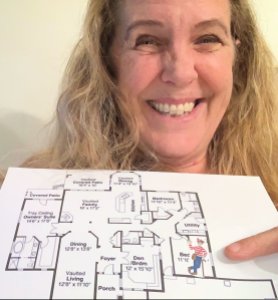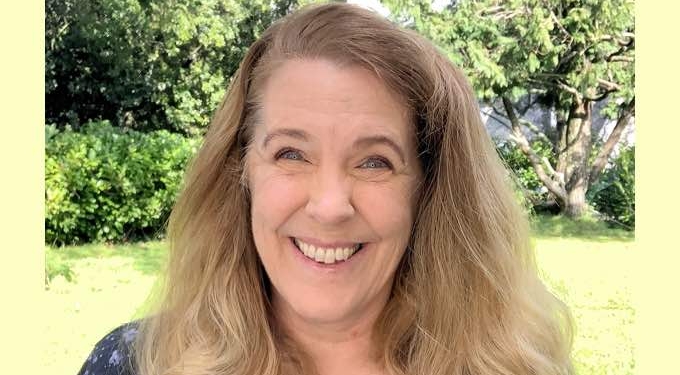I was recently asked what people can do to survive the current weird environment. This query continued: “We really need to shift our reality away from negativity and fear. It’s funny because as I type this you are saying in the background on YouTube, ask the good questions.”
When we feel we're in a weird environment, full of negativity and fear, we can shift to a positive perspective. We can take a deep breath, acknowledge the vastness of the Cosmos, and our connection to it, and we can raise our level of consciousness to a higher dimension. Through this raising of consciousness we can experience sadness transform into vulnerability; anxiety transform into caring; and anger transform into assertiveness.
Your Ongoing Conversation with the Cosmos
Our questions matter a great deal more than most of us consciously realize. Most every mentally focused, heart-centered, passionately inspired thought and question–even those thought ‘privately' to ourselves are in actuality one side of an on-going conversation we are engaged in every day of our lives.
This concept garnered some respect when introduced by physicist John Archibald Wheeler, who emphasized that we live in a participatory universe:
“We are not only observers.
We are participators.
In some strange sense,
this is a participatory universe.”
— John Archibald Wheeler
This concept is wonderful, because it provides us with a basis by which we can be scientists, conducting personal experiments in our own lives. I suggest for best results to start by paying attention to how you are feeling.
On days when your Qi (internal energy) is high, such as when you are in love, or have meditated, exercised, or spent a beautiful day in nature, you may notice that some thoughts seem to instantly manifest in physical reality.
When we're not feeling strong energy, there are some things we can do to pull ourselves up by the proverbial bootstraps.
The Observer's Perspective Effect
The so-called “Observer Effect” in quantum physics refers to the principle by which the very act of taking observational measurements in an experiment such as the famous Double Slit Experiment have the effect of determining what will subsequently be observed.
We can thus shift reality by shifting our perspective. This is a brilliant strategy for virtually any situation that we apparently have no control over. Obviously, with regard to situations we can influence, we can start creating a to-do list and set reasonable goals that we feel fairly certain we can attain. But for everything we have minimal or no ability to influence, the absolutely best thing we can do is to adjust our perspective–and change our attitude. At such a juncture, it's often helpful to remember that there is a great deal that is bigger than us–and we can trust and have faith that the cosmos was here before we were born, and the cosmos will exist long after we're gone.
Sometimes we feel temporarily mired in emotional “stuff”–such as feelings of great sadness, tremendous anxiety, or outrage and anger. When we know that we can take a few steps back and observe ourselves having these emotions, we can begin to pull ourselves out of whatever drama we're feeling tempted to participate in: we can become positive observers.
Breathe Slowly and Deeply
One of the simplest ways to lift above feelings of despair, anxiety, and anger is to take some slow, deep, steady breaths. Inhale with a full, deep, slow breath–and then exhale even more slowly than you just breathed in. Bring your attention to knowing that in this moment of space and time, you are OK. Keep breathing slowly and deeply.
Connect with Cosmic Mind
While still breathing slowly and deeply, bring your awareness to the idea that the Cosmos was here long before you arrived in the form you now occupy. Keep breathing slowly, deeply, and fully and envision that all you really ever need to do is show up in life, and do the best you can for yourself and others. The Cosmos can do the ‘heavy lifting' of coordinating all the reality shifts and miracles that may feel completely out of our control.
Become a Positive Observer
It sometimes helps to notice how other people can get caught up in dramas. People who are feeling constantly sad and downtrodden can seem to be playing the role of Victim; those who seem chronically anxious often play the role of Rescuer; and those who are angry and full of outrage can often (and quite inadvertently) end up playing the role of Persecutor.
When we find ourselves wallowing in seemingly endless sadness, anxiety, or anger we can recognize we might have stepped into some drama ‘quicksand.' At this stage of awareness, it's easy for us to come up with all sorts of rationales and reasons why it's imperative that we must stay ___________ ( depressed / anxious / outraged ), because ___________. When we raise our level of consciousness by stepping back and observing ourselves, we will notice that those stuck feelings are not actually either necessary nor optimal functioning modes.
 As we lift out of lower-vibe emotions, we can move for example, from sadness into vulnerability. We can move from anxiety into caring. We can move from anger into assertiveness. The first step toward becoming positive observers is learning to observe what we are thinking and how we are feeling from a perspective of kindness and unconditional love. There is value in gaining a higher-order viewpoint, in much the same way that you could easily find a hidden character such as Waldo hiding in a two dimensional ‘flatland' floor plan. With the advantage of our three-dimensional observational abilities, we do not need to wander around inside that ‘flatland' floor plan, but instead can instantly see at a glance where Waldo is hiding.
As we lift out of lower-vibe emotions, we can move for example, from sadness into vulnerability. We can move from anxiety into caring. We can move from anger into assertiveness. The first step toward becoming positive observers is learning to observe what we are thinking and how we are feeling from a perspective of kindness and unconditional love. There is value in gaining a higher-order viewpoint, in much the same way that you could easily find a hidden character such as Waldo hiding in a two dimensional ‘flatland' floor plan. With the advantage of our three-dimensional observational abilities, we do not need to wander around inside that ‘flatland' floor plan, but instead can instantly see at a glance where Waldo is hiding.
 Raising our level of consciousness grants us the ability to see the bigger picture–that our thoughts and feelings do not define us, but rather are passing through, much like clouds in the sky. It grants us the ability to rise out of sadness to vulnerability; out of anxiety to caring; and out of anger into assertiveness.
Raising our level of consciousness grants us the ability to see the bigger picture–that our thoughts and feelings do not define us, but rather are passing through, much like clouds in the sky. It grants us the ability to rise out of sadness to vulnerability; out of anxiety to caring; and out of anger into assertiveness.
Honoring this shift to positive perspective, we can remember to keep asking, “How good can it get?”
. . . . . . . . . . . . . . .
And I invite you to watch the companion video to this blog at:
___________________________
 Cynthia Sue Larson is the best-selling author of six books, including Quantum Jumps. Cynthia has a degree in physics from UC Berkeley, an MBA degree, a Doctor of Divinity, and a second degree black belt in Kuk Sool Won. Cynthia is the founder of RealityShifters, and is president of the International Mandela Effect Conference. Cynthia hosts “Living the Quantum Dream” on the DreamVisions7 radio network, and has been featured in numerous shows including Gaia, the History Channel, Coast to Coast AM, One World with Deepak Chopra, and BBC. Cynthia reminds us to ask in every situation, “How good can it get?” Subscribe to her free monthly ezine at:
Cynthia Sue Larson is the best-selling author of six books, including Quantum Jumps. Cynthia has a degree in physics from UC Berkeley, an MBA degree, a Doctor of Divinity, and a second degree black belt in Kuk Sool Won. Cynthia is the founder of RealityShifters, and is president of the International Mandela Effect Conference. Cynthia hosts “Living the Quantum Dream” on the DreamVisions7 radio network, and has been featured in numerous shows including Gaia, the History Channel, Coast to Coast AM, One World with Deepak Chopra, and BBC. Cynthia reminds us to ask in every situation, “How good can it get?” Subscribe to her free monthly ezine at:














